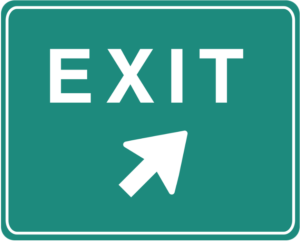Thinking Is Believing
The first self-help recording to sell more than a million records (1956) was Earl Nightingale’s recording called THE GREATEST SECRET IS – WE BECOME WHAT WE THINK ABOUT MOST.
80% of the reason you go to the doctor is the way you feel. In the United Kingdom doctors went on strike in 1977 for six weeks. The death rate went down 40%. The reason is people were waiting for the doctors to get back. When does the death rate go down? Holidays. People live toward their expectations.
The Science
In your brain there are neuro-transmitters with keys (chemicals). They are hormone-like protein substances that are secreted in the brain to fulfill an emotional thought. The lock in our brain is like a little receptor pool that wants to be fed:
- Endorphins = pain killer
- Encephalon = natural high
- Amphetamine = euphoria (Chocolate is a mimic opiate to mimic the amphetamine of love.)
Endorphins are so powerful that women in labor begin to secrete them to get through a tough experience. Athletes secrete them. The pituitary gland secretes endorphins that mix with adrenaline. The second wind comes in, and you have exhilaration caused by the release of natural opiates.
Thinking and Science in Business
Business is a never-ending flow of events. Work is an endless stream of situations and circumstances. The events may differ slightly from business to business, but not as much as you might think. Businesses in the same industry generally experience the same types of events. External factors provide no advantage or disadvantage to a business. Competitors are not simply getting better opportunities because of luck.
The main source of competitive advantage for any business in any industry is the behavior of its people. People do not produce results. The behavior of people produces results. Behavior of people is driven by their thinking. Thoughts Grow.
Response of people, not the events they experience, is the key variable in performance. Responses are behaviors driven by thinking. Thoughts Grow.
The “Dues” (And Don’ts) Of Focused Thinking
In the English language, we are said to “pay” attention, which plainly implies that the process extracts a cost. Research on our thinking patterns shows us the form of the fee:
- When attention is paid to something the price is attention lost to something else.
- Because the human mind appears able to hold only one thing in conscious awareness at a time, the toll is a momentary loss of focused attention to everything else.
Have you ever noticed how difficult it is to experience—genuinely experience—two things at once. For example, if I start looking intently for a highway exit while listening to a CD in my car, I’ll stop hearing the music; and, if I am listening intently to the music, I’ll often miss my exit!

WORDS IN ACTION
1. Identify what you are thinking about in response to an event (something you do not control).
2. List:
a. What were thoughts of good outcomes
b. Thoughts of stressful outcomes
3. Reflect and journal about what you have noticed.
Onward and Upward,
Steve





